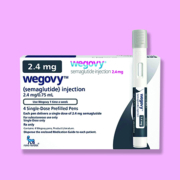PFAS uncertainty: assessing risks and impacts on the pharmaceutical industry
PFAS uncertainty: assessing risks and impacts on the pharmaceutical industry
By Cally Edgren, Assent Inc.
Upcoming regulatory changes surrounding the use of perfluoroalkyl and polyfluoroalkyl substances (PFAS) have been making headlines across the globe. As the United States and European Union continue to move toward banning and limiting the use of PFAS products, the pharmaceutical industry, much like others, must address the mounting risks related to this family of chemicals.
The essential role PFAS play in manufacturing processes and pharmaceutical packaging mean that the industry must recognize these changes by risking supply chain disruptions, increased production costs, brand damage, and lost market access.
Supply shortages
With 3M, one of the largest PFAS suppliers in the world, announcing its discontinuation of PFAS products by 2025, the potential for supply chain shortages and disruptions affecting countless industries is high.
The pharmaceutical industry is no exception. The manufacturing equipment used in producing pharmaceutical products requires a host of components built using PFAS. The industry relies on these components to produce, maintain, and design manufacturing equipment. They include membranes, seals, gaskets, tape, and electronics, to name a few. Supply chain disruptions due to PFAS shortages can potentially leave the entire manufacturing sectors (not just the pharmaceutical industry) scrambling to source vital manufacturing components or equivalent replacements, which may not yet be available.
Another concern related to a potential PFAS shortage is its use within active pharmaceutical ingredients (APIs).
According to the European Federation of Pharmaceutical Industries and Associations (EFPIA), as of January 2022, roughly 100 launched and (pre)registered drugs contain polyfluorinated alkyl substituents, including many on the World Health Organization’s “List of Essential Medicines.”
Many chemical manufacturing processes use PFAS products, including starting materials, chemical intermediates, and reagents. Pharmaceutical packaging is also heavily reliant on PFAS products, especially in using fluoropolymers, which can protect from moisture and are commonly used as non-stick backings in blister packaging for medicines.
While there may be valid arguments to present to regulators concerning the “essential uses” of PFAS in critical pharmaceuticals — which could potentially lead to restriction exemptions — other “nonregulatory” factors must be considered. These include direct factors (e.g., supply chain shortages, insurer liability for environmental impact) and indirect factors (e.g., companies following 3M’s lead, causing PFAS to become more expensive and difficult to source).
Beyond concerns about availability and PFAS pricing, there is also the concern about impacts to certifications and registrations of the drugs being sold if they need to be replaced with new materials.
How can pharmaceutical companies manage PFAS risk?
As with all industries, the first step to managing PFAS risk is understanding it, which means businesses need to know where they’re using PFAS in the first place, not just in their actual product formulations but in their equipment, chemical processes, packaging, etc.
Only when pharmaceutical manufacturers can identify all the places that they are using PFAS can they determine their most critical pain points and proactively minimize the impact of a disappearing PFAS supply chain. However, identifying all the areas in which PFAS are used can take time and effort, since they are found in so many different applications.
 |
Cally Edgren, director of sustainability at Assent Inc. Cally Edgren is a proven compliance program leader with experience developing, communicating, and executing company goals and strategies. She is a subject matter expert on product materials compliance as well as market access certifications and has a background in program and process development to support regulatory compliance requirements. Edgren has more than 27 years of experience in developing and managing global compliance programs at Rockwell Automation and Kohler Co. |










